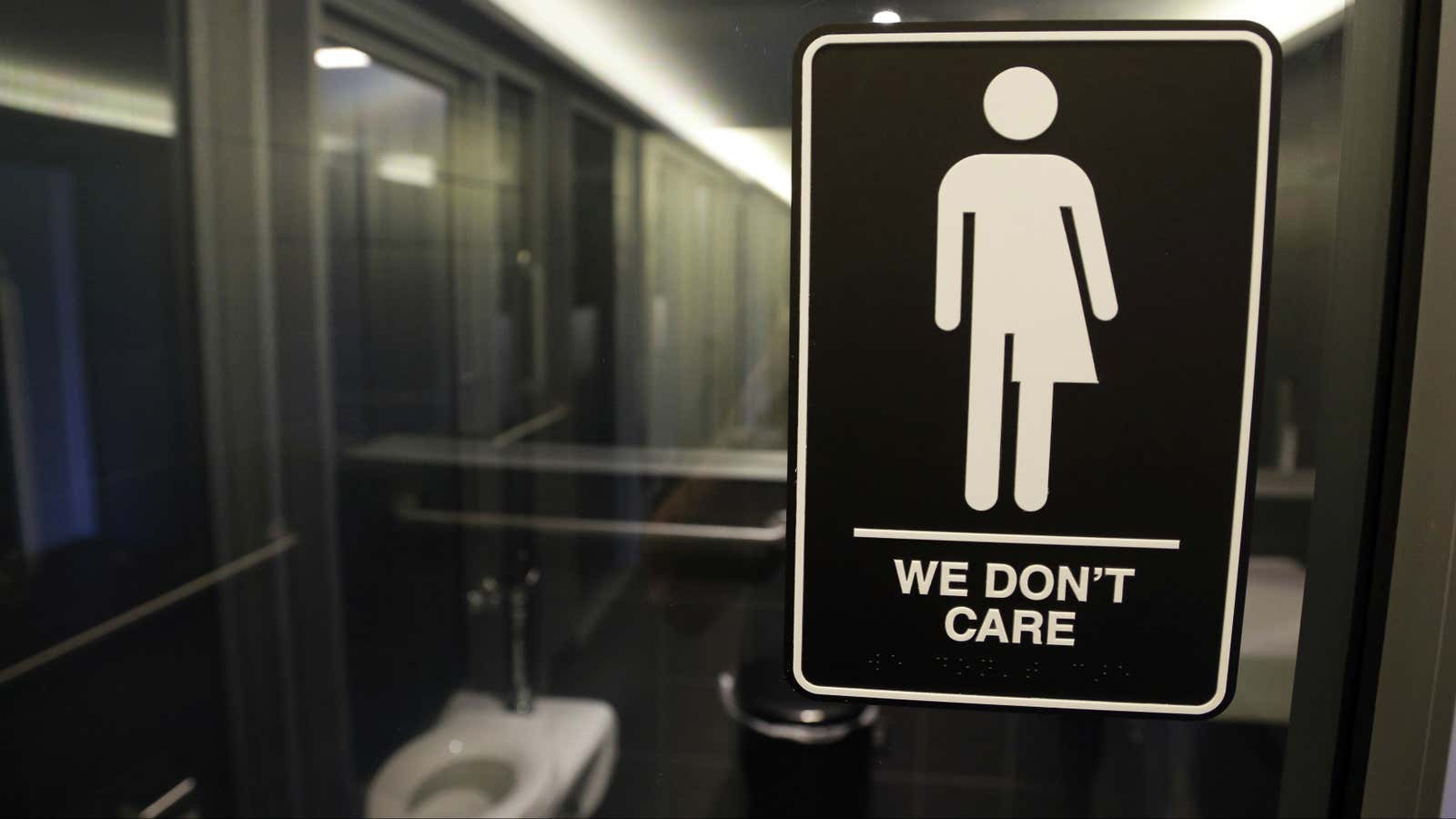Youth in the US are far more comfortable than previous generations with people not identifying as either a man or a woman. Almost 60% of those aged 13 to 21—members of “Generation Z”—believe forms that ask about gender should include options besides “man” or “woman,” according to a recently released survey from the Pew Research Center. This compares to half of Millennials (aged 22 to 37) and just over 30% of Baby Boomers (54 to 72).1
The survey, conducted last year from September to November, included over 10,000 people.
The survey reveals that it is Generation Z’s views on gender non-conformity that make it most distinct from millennials. On most other subjects asked about, like views of Trump and gay marriage, the two youngest generations have similar views.
Members of Generation Z were also unusually likely to say that society is not accepting enough of people who don’t identify as a man or woman, and to claim they knew someone personally who uses a gender-neutral pronoun.
Pew points out that while young people who identify as Democrats are only slightly more likely than older Democrats to believe in the recognition of gender neutrality, there are starker generational differences among Republicans. For example, 41% of Generation Z Republicans believe forms should offer options besides male and female, compared to just 17% of the Republican Baby Boomers and members of Generation X.
